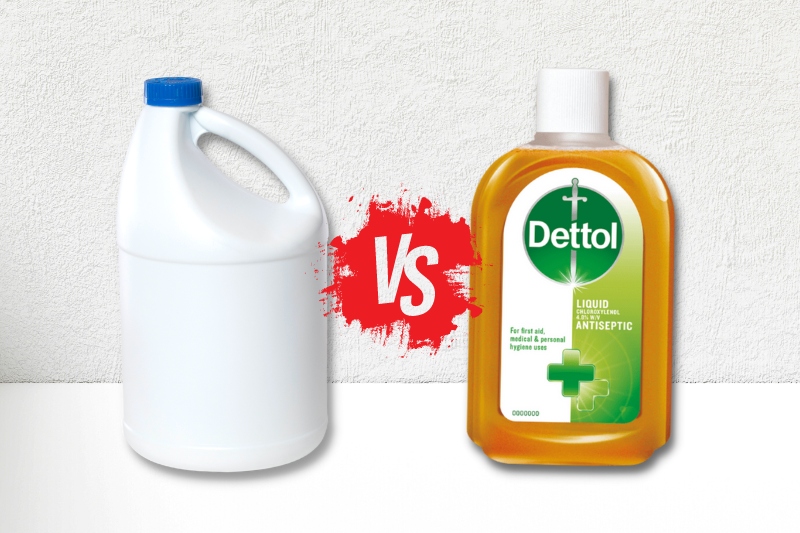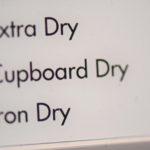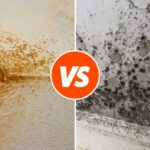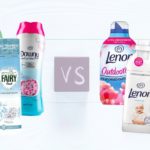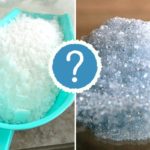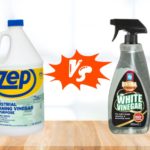When it comes to household cleaning, there are a lot of different products on the market.
Two of the most well-known ones are bleach and Dettol, both of which are commonly used for cleaning and disinfecting.
But do you know the key differences between them? If not, you may well be using the wrong product for the job.
But not anymore! In this post, we’ll compare bleach vs Dettol and reveal their individual pros and cons to help you make the right choice.
Is Dettol the Same as Bleach?
First things first, Dettol is not the same as bleach. This is a common misconception.
One reason why people may get the two confused is that both have disinfectant properties and they can be used to clean many of the same things.
Another similarity they share is that they usually need to be diluted before use, but they can both be used neat to clean toilets, sinks and drains.
However, as you’ll see below, Dettol and bleach are actually significantly different products.
What is bleach?
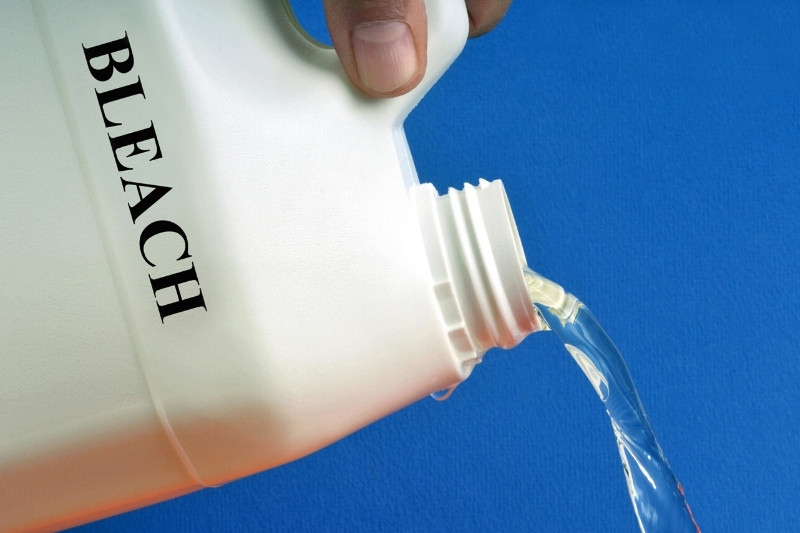
Household bleach contains a strong chlorine compound called sodium hypochlorite. This is diluted down so that typically just 5% remains as the active ingredient for disinfecting non-porous surfaces.
In just 10-30 minutes, even a diluted chlorine bleach solution with 1:10 parts water can kill most bacteria, viruses, fungi and harmful spores.
It can also be used to remove mould and algae on outdoor patios. Plus, thanks to its oxidising properties, bleach is an excellent stain remover.
Tip: you can also get chlorine-free alternatives like oxygen bleach for brightening white clothes.
What is Dettol?
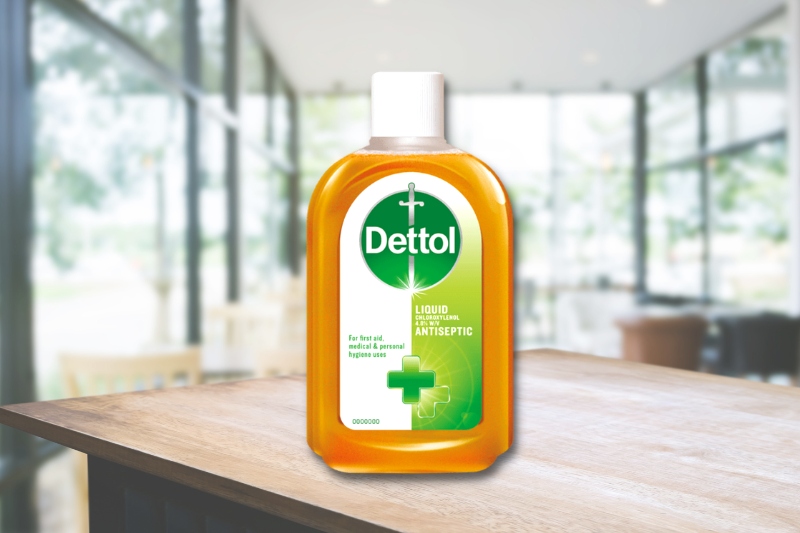
Dettol Liquid Antiseptic, on the other hand, is a multi-purpose disinfectant and antiseptic.
It contains chloroxylenol BP and milder isopropyl alcohol, which work together to kill 99% of germs and protect against infection.
Less harsh than bleach, when diluted, it can be used for medical purposes, like cleaning skin wounds. Yet Dettol is also an effective household cleaner too.
Tip: The Dettol brand stocks a wide range of products alongside their Original Liquid, from bathroom cleaners with bleach to handy wipes for porous surfaces, to cover every scenario.
Bleach vs. Dettol – Which Is Best?
Advantages of bleach
- Highly effective at disinfecting, including killing most dangerous bacterial spores – hence why it’s used in hospitals to prevent the spread of disease.
- Will lift mould and tough stains from toilets, sinks, floors and other non-porous surfaces where other cleaners have failed.
- Its high-strength active ingredient works fast and needs minimal contact time.
- Affordable and easy to get hold of at your local supermarket.
- Many bleaching agents available for different purposes, including fabric-safe options.
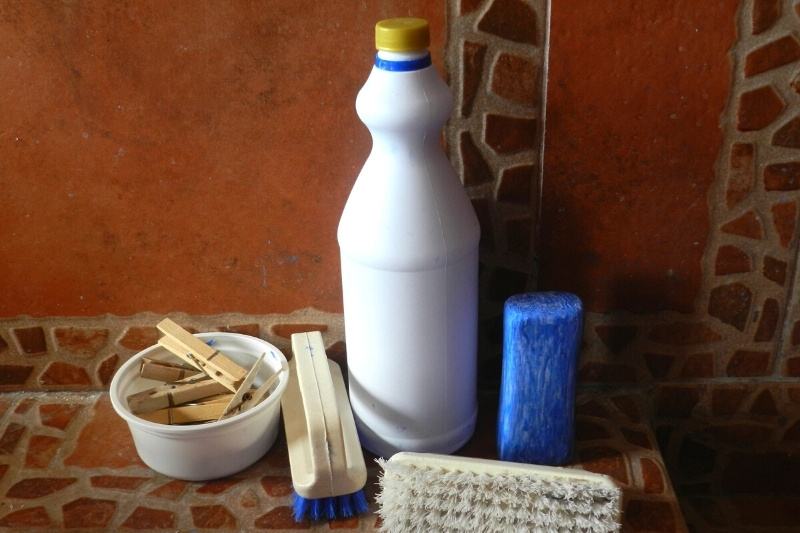
Disadvantages of bleach
- Can’t be used on porous materials like wood and some natural stone (e.g. granite).
- Can permanently damage fabrics/ lighten dark coloured surfaces.
- Not suitable for many metals like stainless steel due to its corrosive properties.
- Irritating to the skin and eyes, and can be harmful if inhaled, so ensure good ventilation.
- Bleach can’t be mixed with other cleaners due to the risk of toxic fumes – especially not ammonia or acidic vinegar.
- Notoriously unpleasant smell which is never fully masked by added fragrance.
Advantages of Dettol
- Dettol Original Liquid is very versatile. It can be used for household cleaning, disinfecting wounds, and even reducing dandruff.
- It can effectively deactivate many common bacteria and viruses, including the flu virus.
- When diluted, it be used on a wider variety of surfaces than bleach, without stripping them of their natural or treated colour.
- You can use Dettol in the wash to disinfect fabrics without damaging the fibres – particularly useful after someone has been ill.
- Fresh, natural pine scent that many users prefer over bleach.
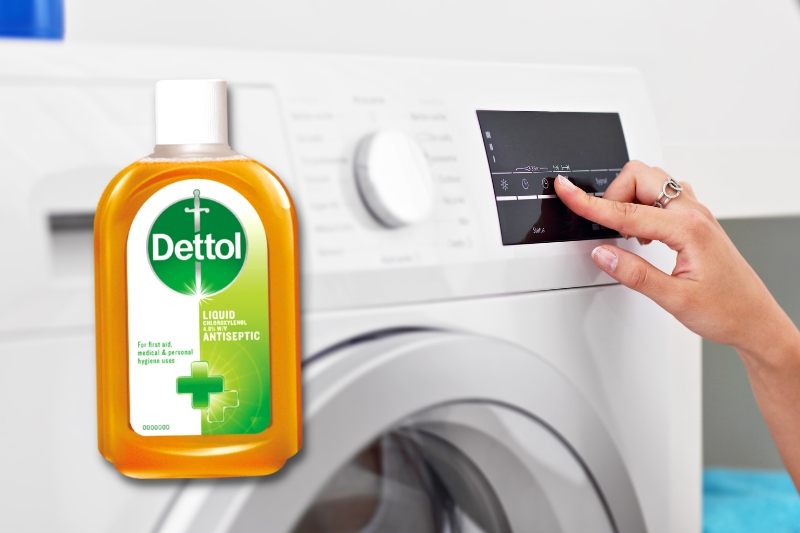
Disadvantages of Dettol
- Its active ingredients chloroxylenol and isopropyl alcohol are ineffective against bacterial spores. The same goes for disinfectants with quaternary ammonium compounds and peroxide-based formulas – chlorine bleach performs much better.
- Dettol won’t remove stubborn stains so some surfaces may still look dirty after use.
- Just like bleach, it is not suitable for use on porous surfaces.
- Despite being slightly gentler than bleach, Dettol can still be harmful to humans and pets. With that in mind, make sure you dilute it fully as per the instructions before use.
Final Thoughts
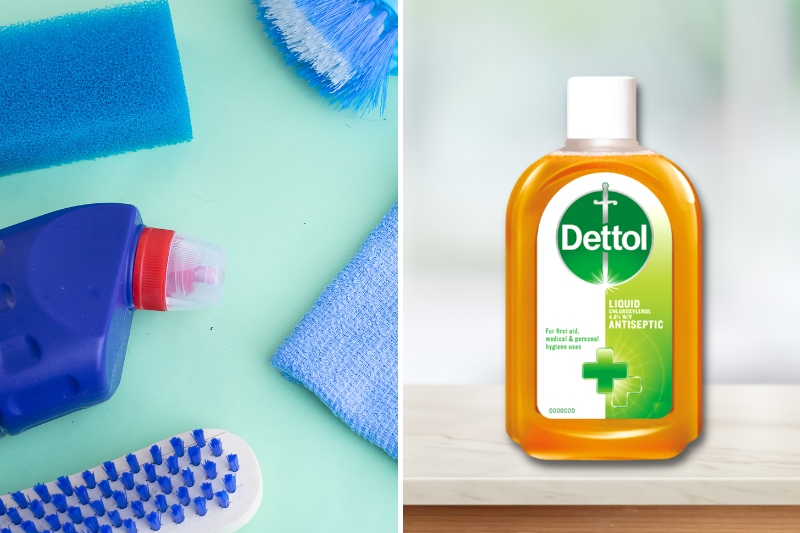
To sum up, both Dettol and bleach are highly effective cleaners with their own pros and cons.
Dettol is the best all-rounder as it can be used for many different purposes. And in most cases, it will sufficiently disinfect surfaces around your home if you feel they need a deep clean.
However, bleach is much better at removing stains and restoring brightness to white surfaces and fabrics.
It is also more affordable and can kill a wider variety of germs, including lingering bacterial spores that could potentially regerminate.
However, it can cause discolouration if used incorrectly and is more toxic than Dettol, so it should always be used with caution.
In short, the right product for you will depend on what you’re trying to achieve and hopefully this post has given you some pointers.
Read our article on the differences between disinfectant and bleach for some more information.

A proud Yorkshire lass with a love for movies, music and cosy nights in! Once a self-confessed avoider of cleaning, she’s always on the lookout for new ways to make household chores as quick and simple as possible.
